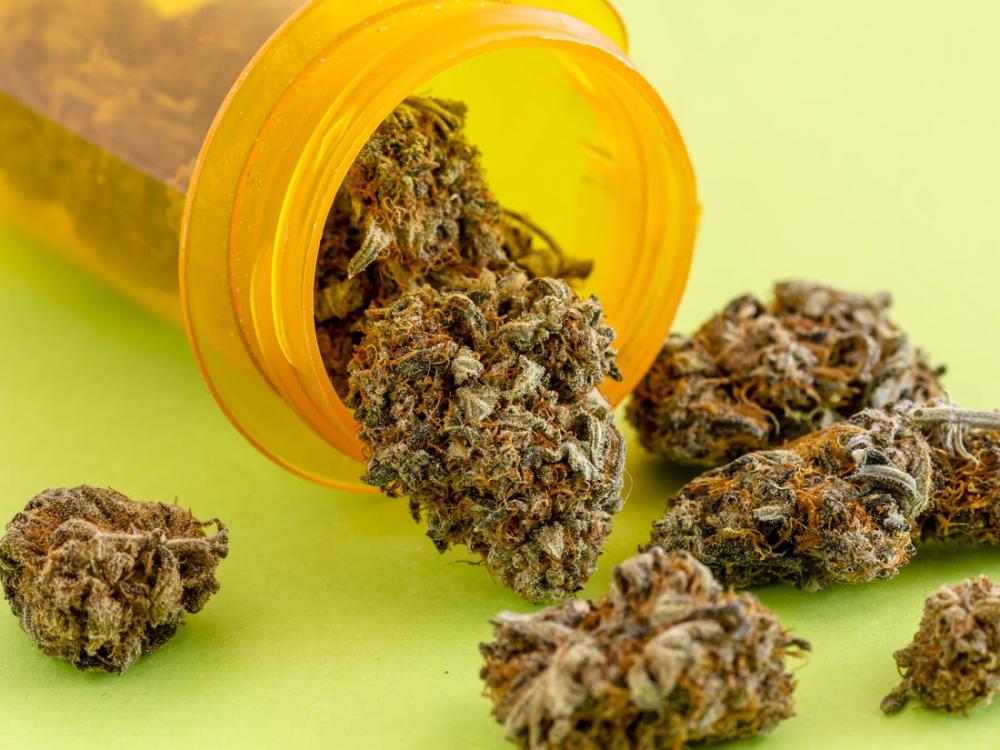Marijuana is a psychoactive drug used primarily for medical or recreational purposes. It is consumed by smoking, inhaling, or mixing with food.
The psychoactive chemical in marijuana, delta-9-tetrahydro-cannabinol, or THC, is responsible for the intoxicating effects. THC bonds to protein-specific receptors in the brain that affect the body.
It has a sedative effect that lowers your inhibitions. Marijuana increases your pulse, lowers your blood pressure, and increases your appetite. It also impacts your short-term memory, reduces your reaction time, and makes you unsteady while walking.
However, marijuana does have positive effects on the human body. Let’s take a look at how marijuana affects the human body.
1- Decrease Risk of Tumor Growth
Tetrahydrocannabinol or THC, the main active compound of marijuana, has anti-cancer properties. THC acts through a specific family of cell receptors called cannabinoid receptors.
According to researchers and scientists, THC, the primary psychoactive ingredient in medical marijuana, reduces tumors’ growth in patients with cancer.
However, there is not enough reliable evidence and studies to prove that marijuana is 100% effective in treating cancer patients.
2- Helps to Relieve Pain
Medical marijuana, used to reduce symptoms, is an increasingly popular alternative to traditional pain-relieving remedies, such as opioids. The THC component of marijuana stimulates the brain’s cannabinoid receptors, which activates the brain’s reward system and reduces pain levels.
A 2015 report analyzed the use of marijuana for various chronic pain conditions and reported that several trials had positive results.
Marijuana eases certain types of pain resulting from nerve damage and inflammation. It helps treat other chronic pain, including cancer pain, migraine, and fibromyalgia.
3- Reduces Nausea & Vomiting
Marijuana deals with the endocannabinoid system, which is responsible for regulating nausea and vomiting in humans. By manipulating the endocannabinoid system, marijuana reduces the effects of nausea and vomiting.
Marijuana works as an antiemetic. CBD, a non-psychoactive compound in cannabis, interacts with serotonin releasing receptors, and when given in relatively small doses, it suppresses both nausea and vomiting.
4- Increases Dopamine Release
Endocannabinoid, commonly known as ECS, promotes a “good feeling” in the human body by increasing dopamine release in the brain.
This explains the euphoria, or the high, experienced by the marijuana users. Neurons that produce dopamine are controlled by the neurotransmitters glutamate and gamma-aminobutyric acid, or GABA. THC induces dopamine release indirectly by removing inhibitory action of GABA or dopaminergic neurons.
5- Impaired Judgement
The endocannabinoid or ECS plays a significant role in manipulating the body’s response to repeated exposure. When you consume marijuana, cannabinoids, and THC, are released into your body and brain.
THC, the main active component in marijuana, affects areas of the brain that regulate your body’s movements, coordination, balance, memory, and judgment. Thus, it leads to impaired judgment by slowing down your reaction time and the ability to make decisions.
6- Greater Appetite and Thirst
Tetrahydrocannabinol, or THC, one of the components of marijuana, binds with the cannabinoid receptors in our brain, mimicking the same chemicals and stimulate the release of ghrelin to cause feelings of hunger. THC also stimulates the olfactory bulb, so that food tastes and smells better.
Conclusion
Substantial evidence from animal studies indicates that exposure to marijuana can cause long-term adverse changes in the brain. Studies on rats showed that exposure to THC before birth, soon after birth, or early life exhibited significant difficulties with certain learning and memory tasks.
However, the long-term effects of marijuana in humans are still debatable. Mostly due to limited research conducted on human beings so far. While recreational use of marijuana is harmful, the cannabis plant and its components may be valuable sources of medicines.







